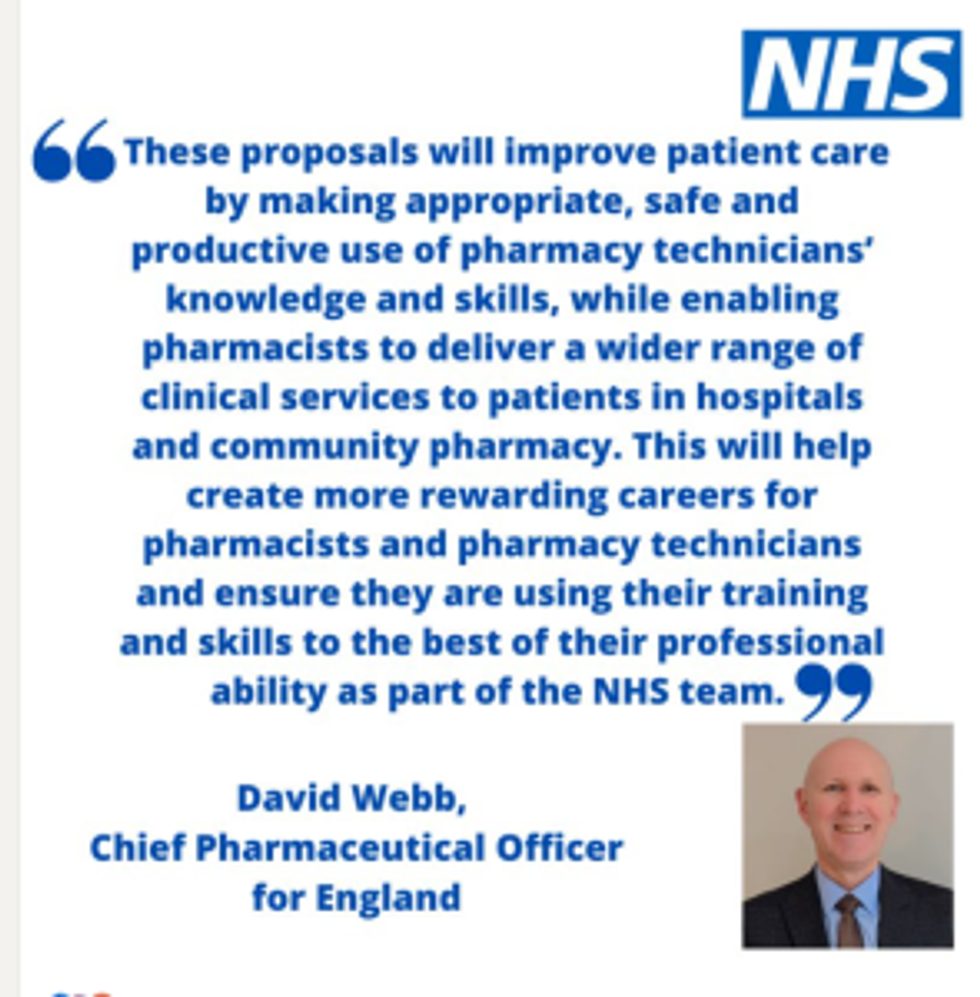Registered pharmacy technicians to play greater role as part of the Primary Care Recovery Plan
The Department of Health and Social Care (DHSC) has launched a consultation to seek views on changes to pharmacy supervision, which is being considered as part of the Primary Care Recovery Plan.
Plans set out in the consultation include making better use of pharmacies, improving access to primary care and maximising the contribution of pharmacy professionals across healthcare.
In the consultation, the DSHC has set out proposals to amend the Medicines Act 1968 and The Human Medicines Regulations 2012.
The proposals aim to allow pharmacists to authorise registered pharmacy technicians to carry out the preparation, assembly, dispensing, sale and supply of pharmacy and prescription only medicines in their absence. Currently, these services can only be carried out by, or under the supervision of, a pharmacist.
As registered and regulated health professionals, pharmacy technicians are “qualified to work without direct supervision,” the DHSC said.
The rule change is designed to free up pharmacists to provide more clinical care, which in turn would help reduce GP appointments.
Health Minister Andrea Leadsom said: “This is about making the most of the talents of our excellent and highly trained pharmacy staff, to benefit them and their patients, and improve service delivery more generally.
“By giving pharmacy technicians the chance to use their skills in a safe way and take on more responsibility for dispensing, pharmacists will have more time to carry out the clinical assessments they are trained to do.
“These include providing advice on oral contraception, common conditions and blood pressure tests rather than patients having to book an appointment at a general practice.”
The consultation will run for 12 weeks from 7 December to 29 February 2024, following which the responses would be reviewed by regulators and professional bodies.
The proposals were prepared following extensive engagement with the sector and profession, and have the support of the four Chief Pharmaceutical Officers of the UK.
The National Pharmacy Association (NPA) has commended the government for launching the long-awaited consultation.
NPA Chair, Nick Kaye, said: “Modernisation of the regulations is well overdue, for example the ability to delegate to any member of the pharmacy team to hand out checked and bagged prescriptions in the absence of a pharmacist.
“We will examine the consultation document thoroughly, to check for any unintended consequences that could reduce access to pharmacists.
“Any changes to legislation or regulations should maintain or improve, not diminish, the public’s access to a pharmacist in a community pharmacy. As pharmacies deliver more and more clinical services, it becomes ever more important to have the clinical skills of the pharmacist readily available.”
More than 67,000 pharmacists registered in the UK will be empowered to have greater say in how staff are deployed and how medicines are dispensed, which will help make pharmacy services more efficient and fit for the future, the DHSC stated.
Earlier in August, a consultation was launched to enable pharmacy technicians to supply and administer medicines under a patient group direction. Responses to the consultation are being considered.
The consultation documents, including a copy of the draft statutory instrument, are available on https://www.gov.uk/government/consultations/pharmacy-supervision














